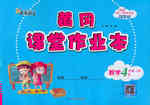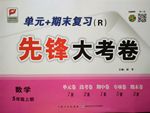题目内容
I have many friends, _____ some are businessman.
| A.of them | B.from which | C.who of | D.of whom |
D
解析

 教育世家状元卷系列答案
教育世家状元卷系列答案 黄冈课堂作业本系列答案
黄冈课堂作业本系列答案 单元加期末复习先锋大考卷系列答案
单元加期末复习先锋大考卷系列答案Ever since Jerusha started her college, she began to write letters. Through a series of letters, from freshman to senior in college, she shared her life and study with an unknown gentleman, who never wrote back. Here is the very first letter.
|
Dear Mr. Kind, Here I am! I traveled yesterday for four hours in a train. It's a funny experience. I never rode in one before. College is the biggest, most confusing place — I get lost whenever I leave my room. I will tell you more later when I'm feeling less puzzled. Now I want to write a letter first just to get me familiar to you. It seems strange to be writing letters to somebody you don't know. It seems strange for me to be writing letters at all — I've never written more than three or four in my life, so please overlook it if they are not a model kind. Before leaving yesterday morning, Mrs. Lippett and I had a very serious talk. She told me how to behave, especially towards the kind gentleman who is doing so much for me. I must take care to be very respectful. I have been thinking of you a great deal this summer; having somebody take an interest in me after all these years makes me feel as though I had found a sort of family. It seems as though I belonged to somebody now, and it's a very comfortable feeling. I must say, however, that when I think about you, my imaqination has very little to work upon. There are just three things that I know: I .You are tall. II .You are rich. III. You hate girl. I suppose I might call you Dear Mr. Girl-Hater. Only that's rather unpleasant to me. Or Dear Mr. Rich-Man, but that's unpleasant to you, as though money were the only important thing about you. Maybe you won't stay rich all your life; But at least you will stay tall all your life! So I decide to call you Dear Daddy-long-legs. I hope you won't mind. It's just a private pet name — we won't tell Mrs. Lippett. The ten o'clock bell is going to ring in two minutes. Our day is divided by bells. We eat and sleep and study by bells. There it goes! Lights out. Good night. You can see how strictly I obey rules due to my training in the John Grier Home. Yours most respectfully, Jerusha Abbott |
1.Which of the following is NOT the reason for Jerusha to write the letter to Mr.Kind?
A. To get her familiar to him. B. To present her thankfulness to him.
C. To share her brand-new college life with him.
D. To apologize to him for not writing letters too often.
2.If Mrs. Lippett learned that the writer calls the man she writes to Daddy-long-legs, she would probably .
A. burst into laughter B. think it acceptable
C. criticize the writer D. inform the man
3.By "when I think about you, my imagination has very little to work upon.", the writer intends to tell us that .
A. the man she writes to is dull and boring
B. she is not familiar with the one she writes to
C. it is not interesting at all to write to a stranger
D. she lacks imagination when it comes to writing a letter
4.Jerusha was probably while she worked on the letter.
A. curious B. light-hearted C. serious D. skeptical
I live in the land of Disney, Hollywood and year - round sun.You may think People , such an attractive, fun - filled place are happier than others.If so you have some mistaken ideas about the nature of happiness.
Many intelligent people still think fun equals happiness.The truth is that fun and happiness have little or nothing in common.Fun is what we experience during an act.Happiness is what we experience after an act.It is a deep, long-lasting emotion.
Going to an amusement park or a ball game, watching a movie or television are fun activities that help us relax, temporally forget our problems and maybe even laugh.But they do not bring happiness, because their positive effects end when the fun ends.
I have often thought that if Hollywood stars have a role to play, it is to teach us that happiness has nothing to do with fun.They have constant access to exciting parties, fancy cars, expensive homes, everything that spells "happiness" But in memoir(回忆录) after memoir, they expose Ac unhappiness hidden beneath all their fun: depression, alcoholism, drug addiction, broken marriages and loneliness.
Ask a bachelor why he resists marriage even though he finds dating to be less and less satisfying.If he is honest, he will tell you that he is afraid of making a commitment.For commitment is in fact quite painful.The single life is filled with fun, adventure and excitement.Man-iage has such moments, but they are not its most distinguishing features.
Similarly, couples that choose not to have children are deciding in favor of painless fun over painful happiness.They can dine out whenever they want and sleep as late as they want.Couples with babies are lucky to get a whole night' s sleep.I don't know any parent who would choose the word fun to describe raising children.
Understanding and accepting that true happiness has nothing to do with fun is one of the most liberating realizations we can ever come to.It liberates time: now we can devote more hours to activities that can truly increase our happiness.It liberates money: buying that new car or those fancy clothes that will do nothing to increase our happiness now seems pointless.And it frees us from envy: we now understand that all those rich and famous people we were so sure are happy because they are always having so much fun actually may not be happy at all.
1.What is the passage mainly about?
|
A.Fun and happiness. |
B.Success and satisfaction. |
|
C.Marriage and commitment. |
D.Entertainment and responsibility. |
2.The author probably agrees that ____.
|
A.fun creates long - lasting satisfaction |
|
B.long - standing fun may lead to happiness |
|
C.fun is short-lived while happiness is long-lasting |
|
D.fun provides enjoyment while pain leads to happiness |
3.What does the author think of marriage?
|
A.It ends in pain. |
B.It means commitment. |
|
C.It affords greater fun. |
D.It leads to raising children. |
4.If one gets the real meaning of happiness, he ____.
A.will start a business B won' t place too much value on money
C.will seek for freedom D.won't devote himself to his family